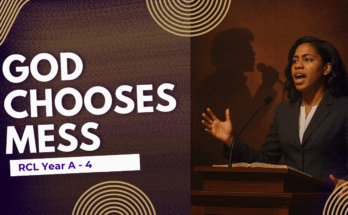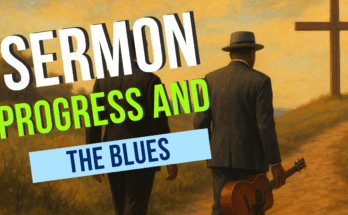As an Amazon Associate I earn from qualifying purchases.
Dr. Charles Adams presented a class entitled “Preaching, Black and White.” During one of the lectures he gave some “do’s and don’ts.” Teresa Fry Brown wrote up notes from that lecture on page 164 and 165 of her book Weary Throats and New Songs. These were to help the preacher deliver their sermons more effectively. In the next few posts we are going to discuss these very important pointers.
The first point is to “Avoid being dull, tedious, or laborious.” Then Adams (through Brown) stated that “Vocal energy paired with sound theology and knowledge of language give life to a sermon.” There are three components to this pointer that all deserve some illumination.
Vocal Energy
First there is vocal energy. Here I think that Adams is getting at what I try to speak of as “sermon intensity.” Here the preacher simply lets the natural enthusiasm of the preacher come through. If the preacher is not enthused about the message, then the preacher is not preaching the right message. Now one should hasten to add that enthusiasm will demonstrate itself in different ways as the different preachers allow their individuality to show, but there will be enthusiasm.
Sound Theology
The second component of Adams’ point is that there should be a “sound theology.” This point is largely about theological integrity. I have a friend who is very frustrated with his pastors preaching. The sense of frustration does not come from a disagreement with his pastors theology. His frustration comes from the totally theologically inconsistent preaching that his pastor gives. One day he is preaching a point, and the next week he is preaching the exact opposite without even referring to the possible inconsistency. Now Adams was probably speaking of having a correct theology, or at least one that majors in the majors of the Biblical message, but I think if we push Adams’ idea a bit further we can say that one’s theology should at least attempt to be consistent. Certainly it will never be totally consistent, but integrity reminds us that we should at least explain the struggles we are having rather than to pronounce some truth one day and then a week later pronounce the opposite. A good book to help the preacher work through his or her theology is Claiming Theology in the Pulpit by John McClure and Burton Cooper
Knowledge of Language
Finally there is knowledge of language. I think that Adams is attempting to speak about simply knowing how language works. Here we might take into account a knowledge of not just language, but also how people process and hear sermons particularly. For example, people cannot remember a ton of unrelated facts, so a sermon that engages in additions that are irrelevant to the main point are simply wasting the time of the preacher and the people. It would at least make it more difficult to determine the main point of the sermon.
I remember hearing a preacher once who let his enthusiasm come through and even had a reasonably sound theology, however his sermons were very hard to listen to. You would feel fatigued after hearing one of his sermons. After some analysis, I realized that the preacher did not make good use of this knowledge of language. He put in a ton of irrelevant side notes that detracted from his message to the point that people simply gave up finding a point. To avoid being dull, let us wed all of these points together in our proclamation of the gospel.
Amazon and the Amazon logo are trademarks of Amazon.com, Inc, or its affiliates.




